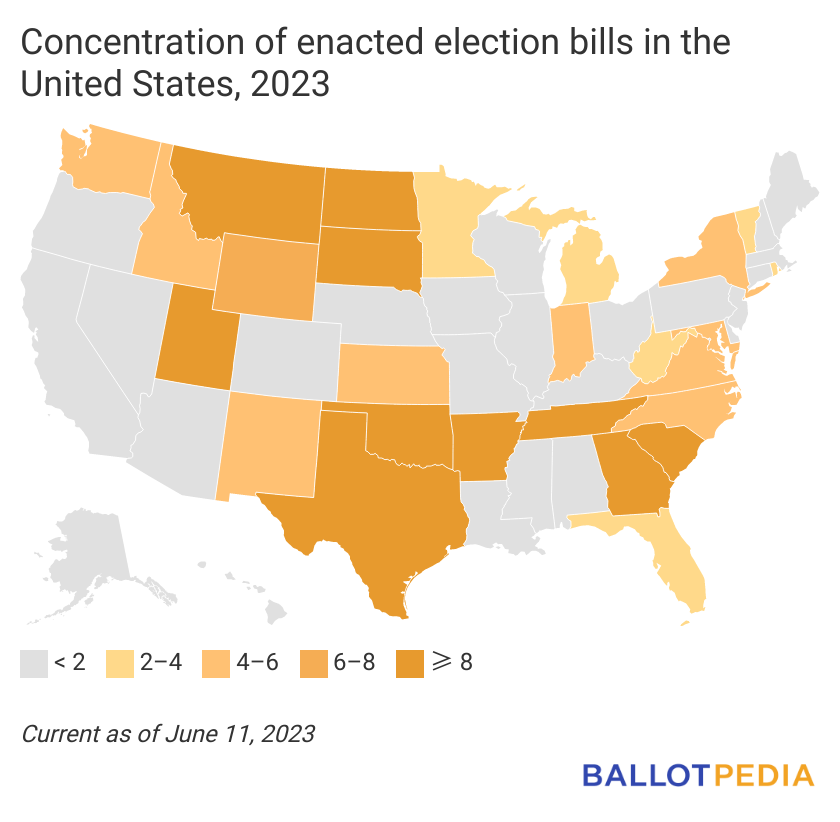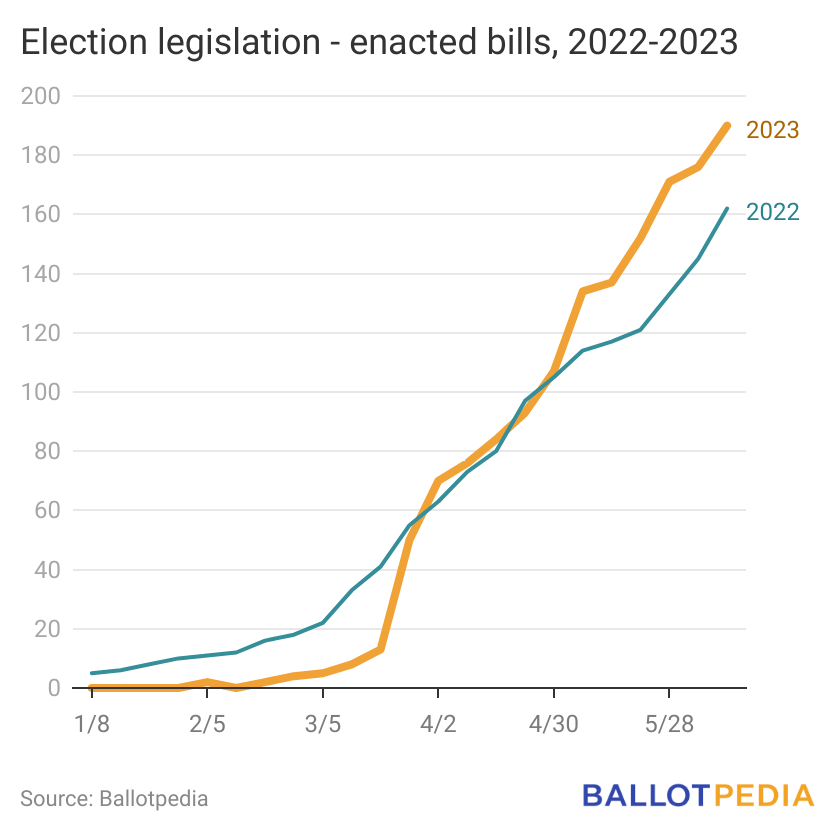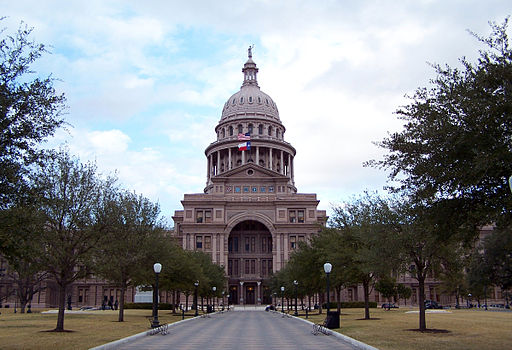As of June 11, members of the Texas State Legislature, which includes the Texas House of Representatives and the Texas State Senate, have passed 10 bills related to election administration since the beginning of the year. Of those 10 bills, legislators passed four during the week of June 5-11. This is four more than the same week last year. Democrats and Republicans sponsored one bill each, while a bipartisan group of legislators sponsored two bills. The four bills are:
- TX HB315: Relating to a statement by the secretary of state regarding the furnishing of certain personal information on an application for a ballot to be voted by mail, Rep. Philip Cortez (D) and Sens. Royce West (D) and Judith Zaffirini (D).
- As introduced, this bill requires the secretary of state to provide a statement on the early voting application that says how a voter’s personal information will be used for early voting purposes.
- TX HB1631: Relating to hours of service by an election watcher, Rep. Dennis Paul (R) and Sens. Brandon Creighton (R), Bob Hall (R), and Mayes Middleton (R).
- As introduced, this bill removes the time commitments necessary for poll watchers to choose their own hours and a provision related to using cell phones while on duty.
- TX HB1632: Relating to standardized training for election officers, Reps. Eddie Morales (D), Penny Morales Shaw (D), and Dennis Paul (R) and Sens. Brandon Creighton (R) and Mayes Middleton (R).
- As amended, this bill requires the secretary of state to provide a standardized training program curriculum, including publishing a publicly-available handbook, in election law and procedure for presiding or alternate election judges, members of early voting ballot boards, signature verification committee members, and members of a counting station. It also requires the secretary of state to provide an online training program for election officials that requires the passage of an examination at the end of the training program. The certificate of completion expires one year after it is awarded.
- TX HB3159: Relating to the use of an accessible absentee mail system by certain voters, Reps. John Bucy (D) and Jeff Leach (R) and Sens. Judith Zaffirini (D) and Bryan Hughes (R).
- As amended, this bill:
- Provides that a person eligible for early voting by mail may receive and cast a ballot using an accessible absentee mail system approved by the secretary of state.
- Requires an accessible absentee ballot system to be approved by the secretary of state which preserves the secrecy of the ballot, authenticates the voter prior to delivery of a ballot, operates safely, efficiently, and accurately, and is equipped with security measures necessary to prevent fraudulent or unauthorized manipulation.
- Requires a unique serial number securely printed on the voter’s marked ballot and requires the voter to verify their health concern and swear that they are the person to whom the ballot is issued.
- Provides that the secretary of state may prescribe additional standards for accessible absentee ballot systems, including operation procedures, and may implement a certification process, an approval process, and a reexamination process for approved systems.
- As amended, this bill:
Of the 10 bills passed this year, nine have been enacted. This is nine more than this point a year ago. Democrats sponsored one bill, Republicans sponsored three, and a bipartisan group of legislators sponsored five. Of the four bills passed last week, three were enacted into law (TX HB315, TX HB1631, and TX HB1632).
From June 5-11, legislators passed 15 bills related to election administration nationally. As of June 11, Tennessee legislators have passed the most bills this year with 17, while legislators in 14 states have passed none. The state with the most enacted bills is Tennessee with 17, while 14 states have enacted none.


The Texas State Legislature was scheduled to be in regular session from Jan. 10 to May 29 this year. In 2022, Texas legislators passed zero election-related bills. Texas is a Republican trifecta, meaning Republicans control the governorship and both chambers of the state legislature.
Additional reading:



